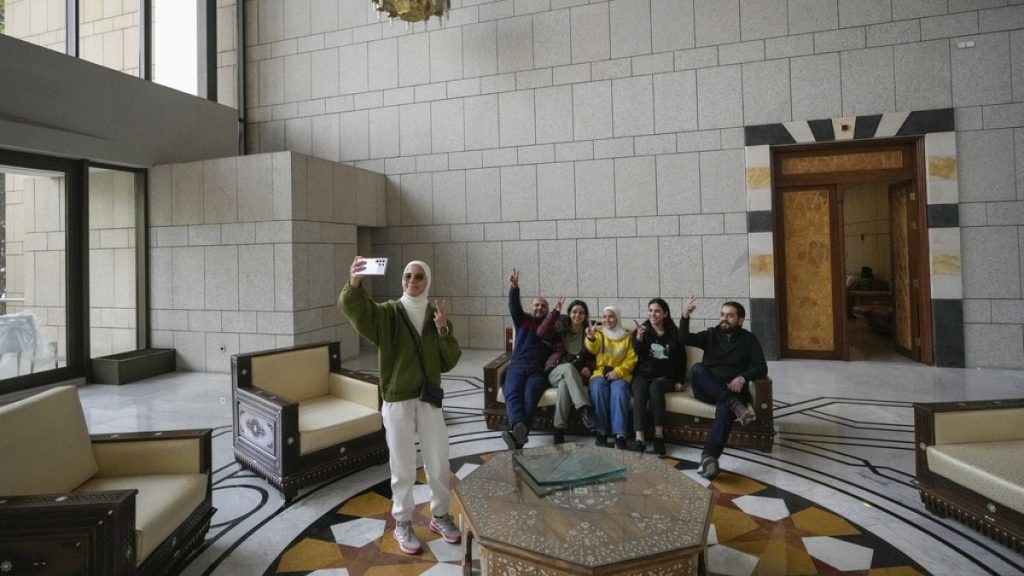The dramatic fall of Bashar al-Assad’s regime in Syria, culminating in his reported flight to Russia, marked a pivotal moment in the nation’s protracted and devastating civil war. While the specific details surrounding Assad’s departure and the immediate aftermath remain somewhat shrouded in uncertainty, the symbolic image of Syrians entering the presidential palace in Damascus underscores the profound shift in power dynamics and the potential for a new chapter in the country’s history. This momentous occasion, occurring on Sunday, September 12, 2024, represents the culmination of years of intense conflict, marked by widespread suffering, displacement, and international intervention. The collapse of the Assad regime opens a complex and uncertain period of transition, fraught with challenges and opportunities for Syria’s future.
The Syrian civil war, ignited in 2011 amid the Arab Spring uprisings, evolved from initially peaceful protests against Assad’s authoritarian rule into a brutal and multifaceted conflict. The regime’s violent crackdown on dissent fueled the escalation of violence, drawing in various opposition groups, including armed rebels, Kurdish militias, and extremist factions like ISIS. The conflict quickly spiraled into a complex proxy war, with international actors like Russia, Iran, the United States, and various regional powers supporting different sides. Russia’s military intervention in 2015 proved crucial in bolstering Assad’s forces and turning the tide of the war in his favor, allowing him to regain control over significant territories. However, the years of fighting left Syria in ruins, with its infrastructure decimated, its economy shattered, and its population deeply scarred by the horrors of war.
The circumstances surrounding Assad’s departure and the specifics of the agreement that facilitated his exit to Russia are still emerging. Reports suggest a negotiated settlement brokered by international actors, possibly involving guarantees of safe passage for Assad and his inner circle in exchange for a peaceful transfer of power. The nature of this transition remains unclear, raising crucial questions about the composition and legitimacy of any interim government and the potential for power struggles among the various factions that have been vying for control. The involvement of external powers in these negotiations raises further concerns about the extent of their influence in shaping Syria’s future political landscape and their commitment to a truly inclusive and democratic transition process.
The entry of Syrian civilians into the presidential palace symbolizes the end of an era and the yearning for a new beginning. The palace, a symbol of Assad’s authority and the repressive apparatus of his regime, now stands as a testament to the resilience and determination of the Syrian people who endured years of hardship and oppression. This symbolic act reflects the popular aspirations for a more democratic and just society, free from the grip of authoritarian rule. However, the path towards achieving this goal is fraught with obstacles, including the deep divisions within Syrian society, the presence of armed groups, the devastating humanitarian crisis, and the potential for further instability.
The immediate priorities in post-Assad Syria are immense and interconnected. Addressing the urgent humanitarian needs of the population, including providing food, shelter, medical care, and psychosocial support, is paramount. Rebuilding the country’s shattered infrastructure, revitalizing its economy, and creating opportunities for sustainable livelihoods are essential for long-term stability and recovery. Establishing a truly representative and inclusive political system that respects human rights and ensures the rule of law will be a complex and challenging undertaking. Dealing with the legacy of war crimes and human rights abuses, including pursuing accountability for perpetrators and providing justice for victims, will be crucial for fostering reconciliation and preventing future cycles of violence.
The international community has a crucial role to play in supporting Syria’s transition and reconstruction. Providing substantial humanitarian aid, facilitating political dialogue and reconciliation efforts, promoting inclusive governance and institutional reforms, and assisting with economic recovery and development are all essential components of a comprehensive international strategy. Addressing the issue of refugees and internally displaced persons, including supporting their safe and dignified return or integration into host communities, requires a concerted international effort. Furthermore, ensuring that the transition process is driven by Syrian ownership and reflects the aspirations of the Syrian people, rather than imposed by external powers, is crucial for building a sustainable and peaceful future. The road ahead for Syria will be long and arduous, but the fall of the Assad regime presents an opportunity for a new beginning, a chance to build a more just and democratic society that respects the rights and dignity of all its citizens.














